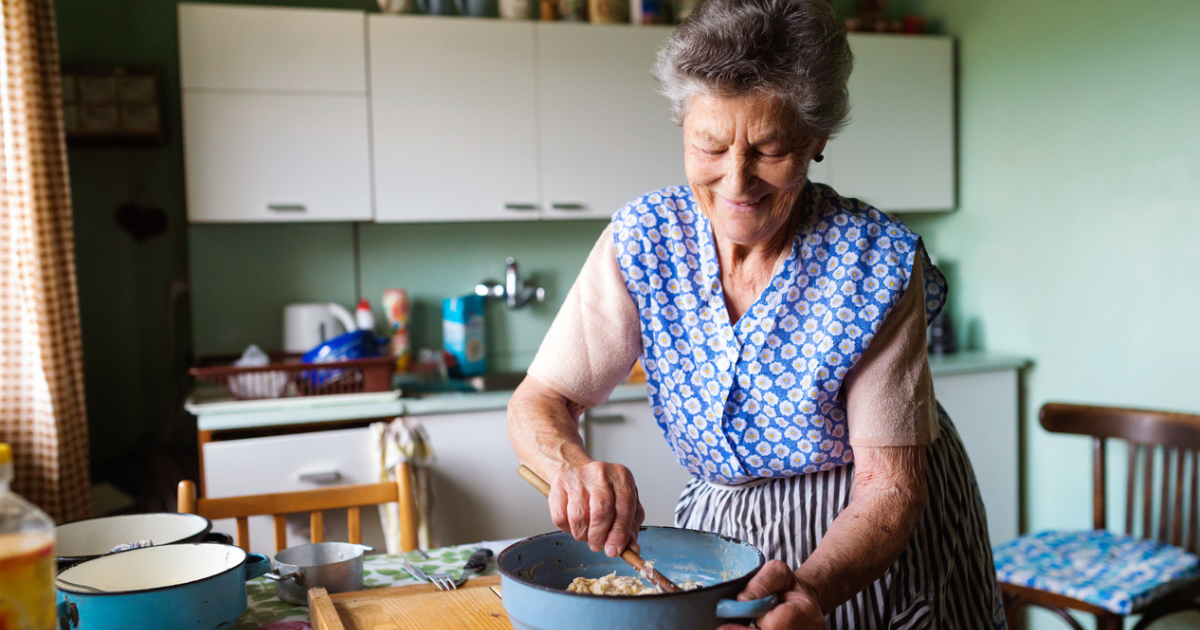
Aging in place has become an increasingly popular choice among seniors who value independence, comfort, and familiarity. This approach allows you to remain in your home and community to enjoy the life you have built.
At its core, aging in place is about providing the necessary support and modifications to remain in your home environment as you age, enabling you to lead a fulfilling life without needing to relocate.
The benefits of aging in place are numerous and impactful, and understanding these advantages allows you to decide the best living arrangement for yourself or your loved ones.
What Are the Benefits of Aging in Place?
Aging in place has many benefits that contribute to an improved quality of life.
Physical Health Benefits
Staying at home allows you to follow your own routines and remain physically active in a familiar environment.
Customized Care
Aging in place provides highly personalized care tailored to your unique needs.
- Tailored home modifications: Homes can be adapted to meet your specific requirements. This might include installing stairlifts, grab bars, or non-slip flooring, all designed to boost safety and accessibility.
- Individualized care plans: Services (like those offered by Keystone In-Home Primary Health Care) provide specialized in-home medical care plans that address chronic conditions, medication management, and routine health checks. This guarantees you receive the care you need without unnecessary treatments or interventions.
- Examples of in-home health services: In-home health services could include physical therapy, occupational therapy, wound care, and chronic disease management. These services support physical well-being and allow regular monitoring and adjustments based on your evolving health status.
Read Aging in Place: A Room-by-Room Guide to Preparing Your Home for a deeper dive into home modifications.
Reduced Risk of Infections
Another significant health benefit of aging in place is the reduced risk of infections compared to living in communal environments such as a nursing home.
- Lower exposure to hospital-acquired infections: Seniors who remain at home have considerably lower exposure to hospital-acquired infections (HAIs). Nursing homes and hospitals, despite their best efforts, can sometimes be breeding grounds for infectious diseases due to the close quarters and high turnover of patients.
- Clean and controlled home environment: Maintaining a clean home environment is easier and more controlled than in larger facilities. Family members and caregivers can verify proper hygiene and cleanliness standards are upheld to minimize the risk of infections.
Encouragement of Activity
Staying physically active is essential for maintaining health and mobility as you age. Aging in place can provide numerous opportunities for physical activity.
- Home and garden activities: You can engage in various physical activities in your home and garden, such as light gardening, walking, or stretching exercises. These activities not only promote physical health but also boost your mental well-being.
- Importance of mobility aids and exercise routines: Using mobility aids like walkers, canes, or customized exercise routines can significantly increase your ability to stay active at home. Regular exercise helps maintain muscle strength, flexibility, and overall health.
Read Home Health Care 101: Frequently Asked Questions for more on the physical health benefits of aging at home.

Emotional and Psychological Benefits
Aging in place offers several emotional and psychological advantages that boost your overall quality of life.
Maintaining Independence
One of the most significant emotional and psychological benefits of aging in place is maintaining independence.
- The importance of independence for your well-being: Independence is important for your mental and emotional well-being. It fosters a sense of self-worth and dignity, essential to happiness and life satisfaction.
- Greater control over daily routines: Aging in place gives you greater control over your daily activities. You can wake up and go to bed on your own schedule, choose your meals, and engage in preferred activities without the restrictions of an institutional setting.
- Increased sense of control and autonomy: Making decisions about your life boosts your sense of control and independence. This empowerment can significantly improve your overall quality of life and provide a more positive outlook on aging.
Familiarity and Comfort
The emotional comfort of staying in a familiar environment cannot be overstated. Here’s how it impacts you:
- Psychological comfort: Remaining in your home, surrounded by personal belongings and cherished memories, provides psychological comfort. This familiarity helps reduce feelings of displacement and confusion often associated with moving to a new environment.
- Reduced stress and anxiety: Being in a known space reduces stress and anxiety levels. The predictability and security of a familiar environment can contribute to better mental health and emotional stability.
- Impact on cognitive health and memory retention: Familiar surroundings can positively impact cognitive health, particularly those with Alzheimer’s or dementia. Being in a known environment helps maintain memory retention and cognitive function.
Sense of Community
Aging in place also supports a strong sense of community, vital for emotional and psychological well-being.
- Staying connected with neighbors and local community: Seniors who age in place remain part of their neighborhood and community. This connection helps combat feelings of isolation and loneliness, common among older adults.
- Participation in social activities and neighborhood events: Continued participation in social activities and neighborhood events keeps you engaged and active. Whether attending local gatherings, visiting friends, or being involved in community projects, these interactions provide joy and a sense of belonging.
Check out Living Independently in Idaho: Activities for Seniors and Elderly Wellness Programs in Idaho for resources on activities and other programs that improve your overall well-being.
Financial Benefits
Aging in place also offers financial advantages.
Cost Savings
One of the primary financial benefits of aging in place is the considerable cost savings compared to a nursing home or assisted living facilities.
- Comparison of costs: The costs associated with nursing homes and assisted living facilities can be higher than those incurred while aging in place. Monthly fees for residential care facilities often include room, board, and comprehensive medical services, which can quickly add up.
- Avoiding facility fees and shared services: Institutional care facilities typically charge for a wide range of services and amenities, many of which may not be necessary for every resident. By staying at home, you only pay for the specific services you need, such as in-home medical care or assistance with daily activities. This leads to substantial savings as unnecessary expenses are minimized.
Efficient Use of Resources
Aging in place also allows for more efficient use of existing resources:
- Leveraging existing home equity: Many seniors own their homes and can leverage this equity to fund necessary home modifications and care services. For example, installing safety features like grab bars, ramps, or stairlifts can be financed through home equity loans or reverse mortgages, making these modifications more affordable.
- Financial assistance programs and grants: Various financial assistance programs and grants are available to help cover the costs of home modifications. These programs can be sourced from federal, state, and local governments and non-profit organizations. For instance, programs like the U.S. Department of Agriculture’s Rural Development Housing Repair Loans and Grants provide funds for senior home modifications.
Read Navigating Financial Aspects of Home Health Care for more finances and aging in place.

Benefits for Family and Caregivers
Aging in place benefits family members and caregivers by facilitating greater involvement in your care.
Family Involvement
Aging in place allows family members and caregivers to take a more active role in your daily care and support.
- Facilitates family participation in care: Aging in place allows for regular visits, hands-on assistance, and the opportunity to monitor your well-being closely.
- Strengthening family bonds and providing peace of mind: Caring for a senior family member within the familiar home environment helps strengthen family bonds. Family members often find peace of mind knowing you are safe, comfortable, and receiving personalized care tailored to your needs.
Flexibility in Caregiving
Aging in place also provides significant flexibility for family caregivers, making it easier to balance caregiving responsibilities with other aspects of their lives:
- Support without disrupting lives: Aging in place allows for shared caregiving duties among family members, enabling them to provide care while still managing their personal and professional commitments.
- Availability of respite care services: For times when family caregivers need a break, respite care services are available. This support system helps prevent caregiver burnout and maintains the overall health and well-being of your caregiver and you.
Personalized Care Plans
Another important benefit of aging in place is the creation of individualized care plans, which provide comprehensive and appropriate care.
- Crafting individualized care plans: Personalized care plans are designed to address your specific health needs and preferences. These plans can include a combination of medical treatments, daily living assistance, and lifestyle modifications, all provided within the comfort of your home.
- Balancing professional care with family support: Aging in place allows for a balanced approach that combines professional medical care with family support. Keystone Health’s services, for example, include in-home visits from healthcare professionals who work alongside family members to deliver comprehensive care. This collaboration allows you to receive high-quality medical attention while benefiting from your family's emotional support.
Embracing the Comforts of Home
Aging in place offers many benefits that can greatly improve your life. By remaining in the comfort of your own home, you can maintain your independence, enjoy personalized care, and stay connected to your community.
At Keystone Health, we are committed to making aging in place a seamless and rewarding experience through our comprehensive home healthcare services.
If you or a loved one are considering the benefits of aging in place, contact Keystone Health today. Our team is here to provide the support and care needed for a safe, comfortable, and fulfilling life at home.
